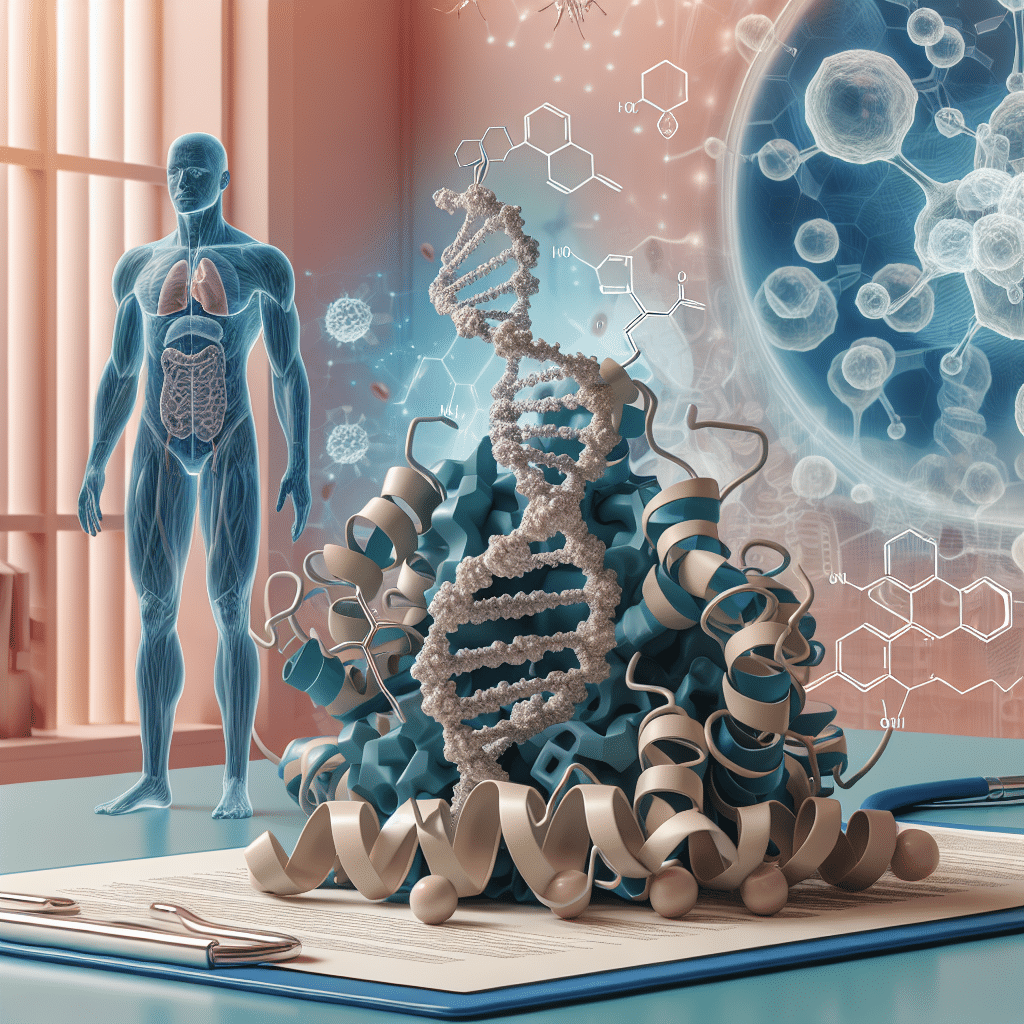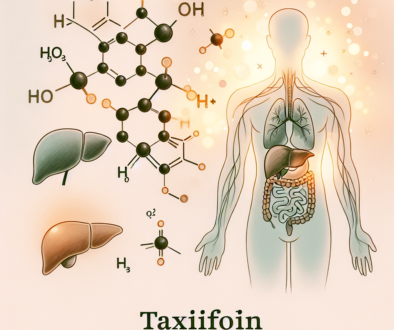Taxifolin: The Ultimate Diabetes Fighter
-
Table of Contents
- Taxifolin: The Ultimate Diabetes Fighter – A Natural Approach to Blood Sugar Control
- Understanding Taxifolin and Its Health Benefits
- The Role of Taxifolin in Diabetes Management
- Antioxidant Action and Blood Sugar Regulation
- Anti-Inflammatory Effects
- Improving Lipid Profiles
- Case Studies and Clinical Trials
- How to Incorporate Taxifolin into Your Diabetes Management Plan
- Dietary Sources of Taxifolin
- Supplementation
- Precautions and Side Effects
- Conclusion: Taxifolin as a Complementary Therapy for Diabetes
- ETprotein’s Protein Products for a Balanced Diet
Taxifolin: The Ultimate Diabetes Fighter – A Natural Approach to Blood Sugar Control

Diabetes is a chronic disease that affects millions of people worldwide. It is characterized by high blood sugar levels, which can lead to a range of health complications if not managed properly. While conventional medicine offers various treatments for diabetes, there is a growing interest in natural compounds that can help manage the condition. One such compound is taxifolin, a flavonoid with potent antioxidant properties that has shown promise as a natural diabetes fighter.
Understanding Taxifolin and Its Health Benefits
Taxifolin, also known as dihydroquercetin, is a bioflavonoid found in many plants, including onions, French maritime pine bark, and milk thistle. It is known for its antioxidant, anti-inflammatory, and anti-carcinogenic properties. Research has indicated that taxifolin may have a range of health benefits, including:
- Protecting cells from oxidative stress
- Reducing inflammation in the body
- Improving cardiovascular health
- Supporting liver function
- Enhancing immune response
The Role of Taxifolin in Diabetes Management
Recent studies have explored the potential of taxifolin to act as an adjunct therapy for diabetes. The compound’s ability to combat oxidative stress and inflammation makes it particularly interesting for diabetes care, as these are key factors in the development and progression of the disease.
Antioxidant Action and Blood Sugar Regulation
Oxidative stress plays a significant role in the pathophysiology of diabetes. Taxifolin’s antioxidant properties can help neutralize free radicals, reducing oxidative damage to cells. This is crucial for individuals with diabetes, as high blood sugar levels can lead to increased production of free radicals.
Anti-Inflammatory Effects
Inflammation is another contributing factor to insulin resistance and pancreatic beta-cell dysfunction, both of which are hallmarks of diabetes. Taxifolin’s anti-inflammatory properties may help alleviate inflammation, potentially improving insulin sensitivity and preserving beta-cell function.
Improving Lipid Profiles
Diabetes is often associated with abnormal lipid profiles, including high levels of LDL cholesterol and triglycerides. Taxifolin has been shown to improve lipid metabolism, which could help reduce the risk of cardiovascular disease in diabetic patients.
Case Studies and Clinical Trials
Several studies have highlighted the potential benefits of taxifolin in diabetes management. For instance, a study published in the “Journal of Nutrition and Metabolism” found that taxifolin supplementation significantly reduced blood sugar levels in diabetic rats. Another study in the “European Journal of Pharmacology” reported that taxifolin improved insulin resistance in a mouse model of type 2 diabetes.
While these preclinical studies are promising, more research, including human clinical trials, is needed to fully understand the effects of taxifolin on diabetes and its long-term safety and efficacy.
How to Incorporate Taxifolin into Your Diabetes Management Plan
For those interested in adding taxifolin to their diabetes care regimen, it is available in various forms, including supplements and extracts. However, it is essential to consult with a healthcare provider before starting any new supplement, especially for individuals with diabetes or those taking other medications.
Dietary Sources of Taxifolin
While supplements are one way to increase taxifolin intake, it can also be found in certain foods. Incorporating these foods into your diet can provide additional health benefits:
- Citrus fruits
- Apples
- Onions
- Red wine
- Whole grains
Supplementation
When choosing a taxifolin supplement, look for products that have been tested for purity and potency. It’s also important to follow the dosage recommendations provided by the manufacturer or your healthcare provider.
Precautions and Side Effects
While taxifolin is generally considered safe, it is crucial to be aware of potential side effects and interactions with other medications. Some individuals may experience mild side effects such as gastrointestinal discomfort. Always discuss any supplements with your healthcare provider, particularly if you have a medical condition or are taking prescription drugs.
Conclusion: Taxifolin as a Complementary Therapy for Diabetes
Taxifolin offers a promising natural approach to diabetes management. Its antioxidant and anti-inflammatory properties, along with its potential to improve lipid profiles, make it an attractive complementary therapy for those looking to manage their blood sugar levels naturally. However, it should not replace conventional treatments but rather be used in conjunction with them under the guidance of a healthcare professional.
ETprotein’s Protein Products for a Balanced Diet
In addition to considering natural supplements like taxifolin, maintaining a balanced diet is crucial for managing diabetes. ETprotein’s range of high-quality protein products can help individuals with diabetes meet their nutritional needs while supporting overall health. Their organic, non-GMO, allergen-free proteins are ideal for those looking to enhance their diet with clean, plant-based options.
About ETprotein:
ETprotein, a reputable protein and L-(+)-Ergothioneine (EGT) Chinese factory manufacturer and supplier, is renowned for producing, stocking, exporting, and delivering the highest quality organic bulk vegan proteins and L-(+)-Ergothioneine. They include Organic rice protein, clear rice protein, pea protein, clear pea protein, watermelon seed protein, pumpkin seed protein, sunflower seed protein, mung bean protein, peanut protein, and L-(+)-Ergothioneine EGT Pharmaceutical grade, L-(+)-Ergothioneine EGT food grade, L-(+)-Ergothioneine EGT cosmetic grade, L-(+)-Ergothioneine EGT reference grade and L-(+)-Ergothioneine EGT standard. Their offerings, characterized by a neutral taste, non-GMO, allergen-free attributes, with L-(+)-Ergothioneine purity over 98%, 99%, cater to a diverse range of industries. They serve nutraceutical, pharmaceutical, cosmeceutical, veterinary, as well as food and beverage finished product distributors, traders, and manufacturers across Europe, USA, Canada, Australia, Thailand, Japan, Korea, Brazil, and Chile, among others.
ETprotein specialization includes exporting and delivering tailor-made protein powder and finished nutritional supplements. Their extensive product range covers sectors like Food and Beverage, Sports Nutrition, Weight Management, Dietary Supplements, Health and Wellness Products, and Infant Formula, ensuring comprehensive solutions to meet all your protein needs.
As a trusted company by leading global food and beverage brands and Fortune 500 companies, ETprotein reinforces China’s reputation in the global arena. For more information or to sample their products, please contact them and email sales(at)ETprotein.com today.












